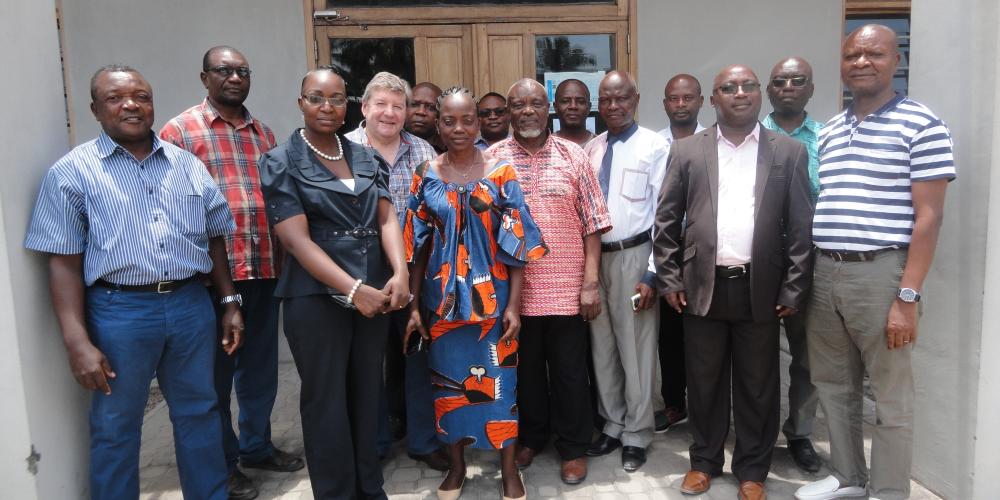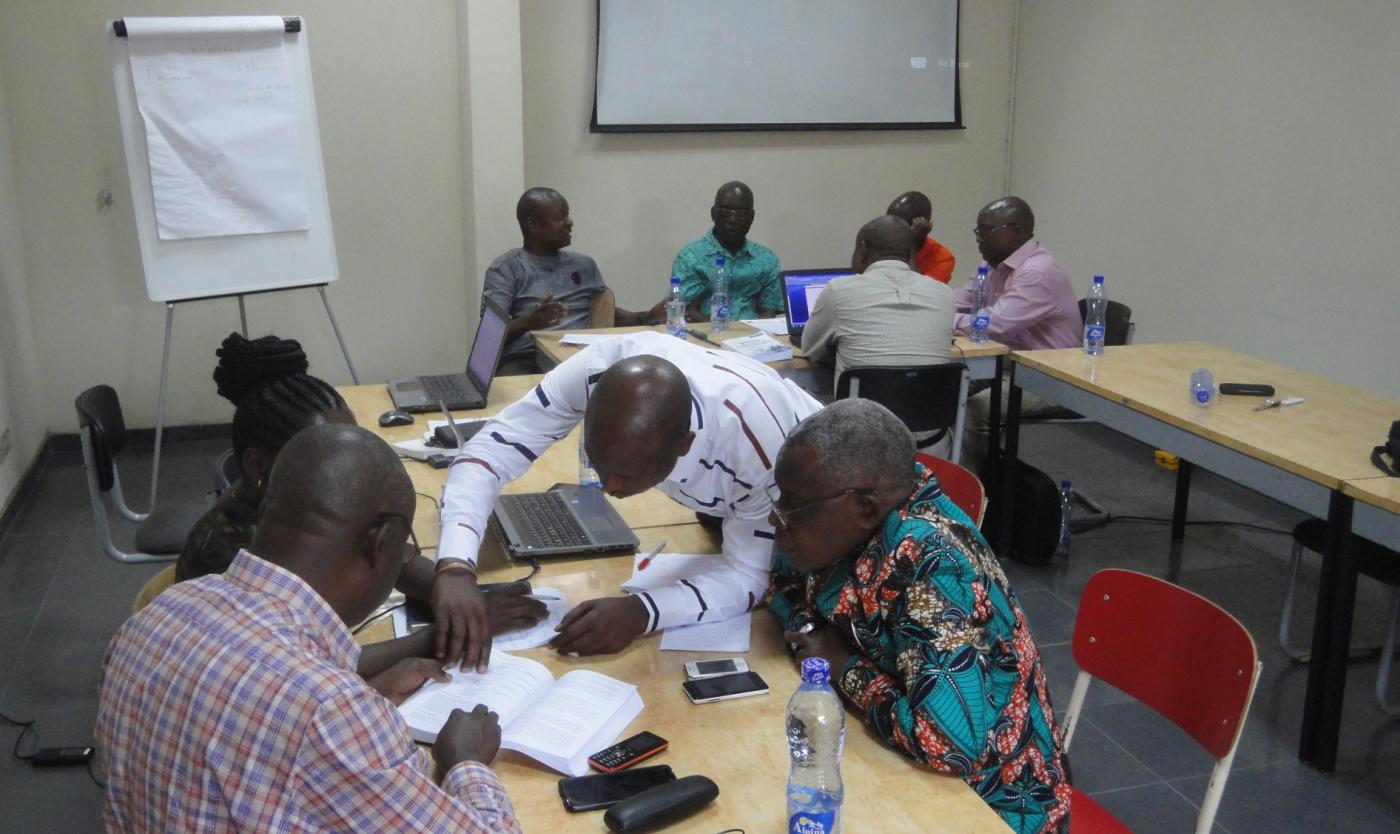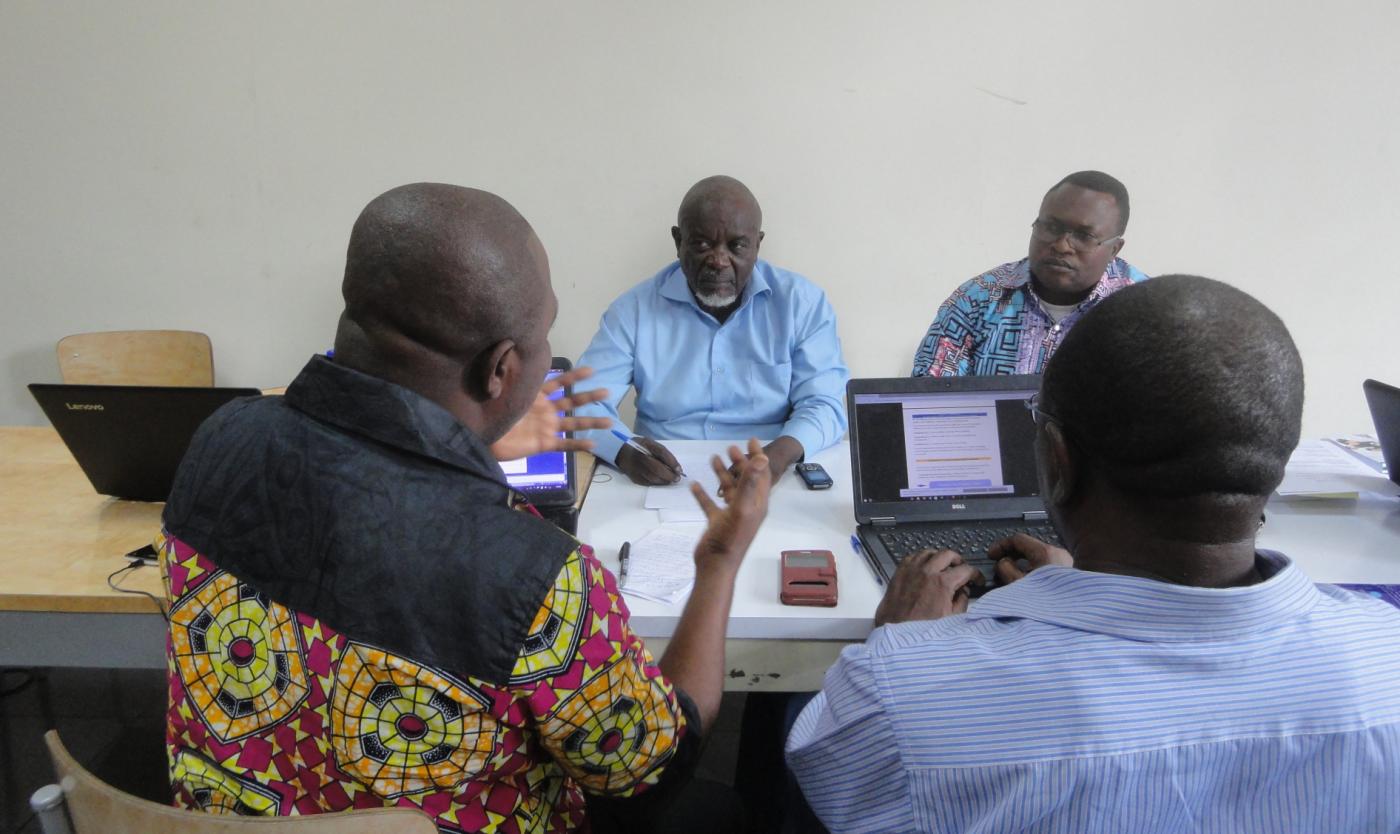
The visit of the King and Queen of Belgium to the Democratic Republic of Congo (DRC) in June 2022 included meetings with students in higher education in DRC, where the royal pair listened to the challenges they face. Just like all students in the world, the DRC students are agents of change and represent the future of their country.
The Democratic Republic of Congo is a country with many issues, and its higher education institutions – some 800 of them across a vast nation – face many challenges. It has long been ranked very low on the list comparing universities and higher education institutions across the African continent, due to a severe lack of expertise and know-how in education. DRC is on the VLIR-UOS list of countries for cooperation projects, and equally, VUB has a tradition of partnership projects with DRC over the years, from student and staff mobility to projects on ICT, digitalisation, socio-ecology, and engineering.
After a preliminary study by Prof. Van Cleemput (UGent), a project started up in 2011, focusing on assessing the quality of higher education in DRC. The project, with funding from VLIR-UOS, was thereafter coordinated by the VUB’s professor Arno Libotton: “We started the project with seven higher education institutions (HEIs), selected by VLIR-UOS. Four were added with funding from The World Bank. After four years, when funding from The World Bank finished, we wanted to keep our ‘family’ together, and we reassigned the VLIR-UOS funding to cover 11 HEIs instead of seven.”
The Multiplier Effect
So how does one go about improving the quality of higher education across a country? And especially such a vast one, as DRC, with some 800 HEIs? The project used the ‘train the trainer’ approach and the ‘multiplier effect’. In other words, train up to 22 people (2 from each of the 11 institutions), and they in turn will subsequently, start training their colleagues from other universities and schools, and so on. “During the last phase of the project, quality assurance units at the 11 HEIs became regional expertise centers: CREAQs (Centre Regional d’Expertise en Assurance Qualité). The people we trained could now train others from institutions in their region. To date, some 40 institutions have now been involved in the project directly and indirectly, and the snowball effect is sure to continue over the years to come,” Arno explains.
The initial analysis of the quality of higher education in DRC started with the students. They were asked to evaluate their courses, practicals, and course materials. Later, the topics were extended to internships, theses, support received during studies, etc. Several training seminars were dedicated to procedures of the ´self-evaluation´ report and the internal quality evaluation.
In the next phase of the project, other areas of university functioning were considered such as research capacity (number of publications, number of researchers, number of post-docs, relations with international research institutions, etc…). Management and governance were investigated (transparency, communication between management and faculty level, decision-making procedures, etc…). International cooperation was reviewed, as this plays an important role in an institution’s rankings (number of cooperation projects, exchange options for students and staff members, etc…).
From a simple course evaluation, the quality assurance project created a complete procedure for institutional quality audits.

Changes
Meanwhile, several changes took place within the DRC’s educational system. They implemented a reform towards an L/M/D set-up - License[i]/Master/Doctorate - and decided that quality assurance had to be an integral part of this reform. A new law dictated that each HEI had to have a quality assurance unit of 1 or more people. The quality assurance project kept on running, taking all these changes in its stride, and continued with its ´train the trainer´-set up to reach as many HEIs in DRC as possible. Reforming the educational structure, also meant that there was an opportunity to look at careers, bring in elements of cooperation with the private sector (e.g., internships), and consider at least to some degree, what the private sector needed from graduates.
On June 22nd, 2022, a closing conference was organised in Kinshasa, marking the formal end of this 11-year project. But the project didn’t just consist of training sessions (paying for attendees’ travel, accommodation, etc. for those coming from all corners of DRC ). A ´Guide AQ!´ - a user manual for the implementation of a quality assurance unit - was developed, and a quality assurance application for the student’s smartphone was created.
Years of International Cooperation Bears Fruit
The app development is an amazing story, linking the results of 3 VLIR-UOS projects, in Kenya, Cuba and RDC.
About 20 years ago VLIR-UOS funded a large IUC project in Kenya, involving research on mangroves, health, distance learning, and ICT. It included four grants for PhDs. Those who did their Ph.D. then, are now professors themselves in computer science. Arno, having known them for 20 years, contacted his ex-students regarding the development of an application for the DRC’s quality assurance project. It was prof. Elijah Omwenga who supervised the project and developed it with his team. But they got input from the other side of the world, and from yet another VLIR-UOS project, this time in Cuba. Arno had worked with a Ph.D. student there (also a computer scientist) who was looking at programming methodologies and looked specifically at how computer programmers can collaborate. Her research result was passed on to the team in Nairobi, who then used it as a method to develop the application to be used in DRC.
Meanwhile, in DRC, the ANAQ (Agence National d’Assurance Qualité) was set up under the auspices of the Ministry of Education (MINESU) and is now run by prof. Constant Nkiama, who followed the project’s quality assurance training sessions from the beginning. With the obligation now for every HEI to have a quality assurance unit, there is confidence in the future. In addition, the theme of quality assurance has been picked up already in a new VLIR-IUC project launched at the University of Lubumbashi. And not only that, but the multiplier effect is also crossing borders, as there’s been an interest in quality assurance procedures in many African countries. Meanwhile, the app that was developed with a method from our Cuban Ph.D. student and the team in Nairobi, is already rolling out in several Congolese institutions.
“This 11-year project has been extremely rewarding; we managed to train people who were eager to improve higher education throughout DRC, and we set a snowball in motion. Ultimately, it’s the country that will benefit from this, thanks to the initial input from the students, and the perseverance and ambition of those following the training,” professor Libotton adds.
VLIR-UOS on their Facebook page said on the occasion of the Royal visit last June to DRC: “Through higher education, students become ‘agents of change; world citizens dedicated to solving global and local challenges in their private and professional lives, and contributing to sustainable development. Our Congolese students are a prime example of the VLIR-UOS spirit.”
We can safely add that all those involved in the quality assurance project have done exactly that too for the DRC’s higher education system: they too are agents of change.
More on the project can be found online. To see more information on the general cooperation with DRC, check this link.
[1] Essentially an equivalent to our Bachelor – Master system
